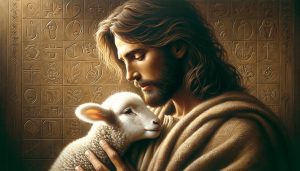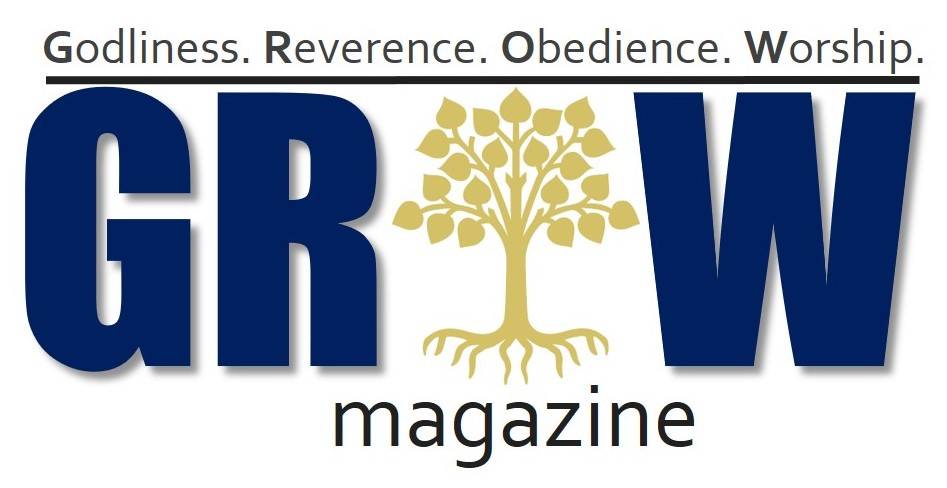How Christ Relates to the Church : The Chief Shepherd
CHURCH ARTICLE | Don McClain | Bryant, Arkansas

“And when the Chief Shepherd appears, you will recdeive the crown of glory that does not fade away.” (1 Peter 5:4, NKJV)
There are a variety of metaphorical expressions used in the New Testament to describe Jesus. Each one gives us a unique perspective of His various positions, roles, and relationships. Each one provides us with greater insight and thus a deeper understanding of our Lord.
One of the most familiar and relatable trades in Palestine during Bible times was that of a shepherd. Literal shepherds and their flocks are referenced often in scripture, but the concept is also used many times metaphorically to illustrate the relationship between…
- God and His people, (cf. Genesis 49:24; Psalm 23; 79:13; 80:1; 95:7; Isaiah 40:11; Jeremiah 31:10; Matthew 18:12-14; Luke 15:1-7).
- Those who were given charge over His people, (2 Samuel 5:2; 2 Chronicles 11:2; Jeremiah 10:21; 17:16; 23:1-4; 25:34-36; 50:6; Isaiah 44:28; 56:11; Acts 20:28; Ephesians 4:11; 1 Peter 5:1-4);
- The Messiah and those who would follow Him, [“I will set over them one shepherd, My servant David, and he will feed them; he will feed them himself and be their shepherd,” (Ezekiel 34:23–31; 37:24-28); “I am the good shepherd; the good shepherd lays down His life for the sheep,” (John 10:11); “the great Shepherd of the sheep,” (Hebrews 13:20); “the Shepherd and Guardian of your souls,” (1 Peter 2:25; 5:4)].
The metaphorical use of the term shepherd would immediately prompt one to think of a leader whose role is to be that of a caring provider, who values, leads, watches over, and protects those under their care. No wonder shepherds and their flocks are so often used in scripture to illustrate these relationships.
THE AUTHORITY OF THE CHIEF SHEPHERD
Peter calls Jesus “the Chief Shepherd.” The terms “Chief, (arche),” and “Shepherd, (poimen)”, in the context, denote the supreme authority of Christ over the shepherds of local churches, and His care, guidance, and provision for them and His people (1 Peter 5:1-3). Jesus has all authority in heaven and on earth, (Matthew 28:18; 1 Peter 3:22), and is over those who shepherd His flock on earth, (1 Peter 5:4). Elders who lead as Jesus instructs will be rewarded with a crown of unending glory.
The Chief Shepherd, by His authority, has established and revealed the criteria and qualifications required for those who would shepherd His people, (1 Timothy 3:1-7; Titus 1:5-9). While men are capable of adequately meeting these qualifications, only Jesus, as the Chief Shepherd, perfectly exemplifies each of them. These qualifications are absolute in the sense that one who is appointed a shepherd, (pastor, elder, bishop), must meet each qualification. However, several of these qualifications vary in application in the sense men may possess them in varying degrees. For example, a shepherd must be able to teach, but one may be better able than another. I dare say none can teach as effectively and perfectly as Jesus.
The focus of this article is the Chief Shepherd and not the qualifications and duties of underling shepherds, but please indulge me for a moment as I make a couple of observations. I am convinced that leadership among churches belonging to Christ is a major problem.
Too many churches do not have elders. There are a multitude of reasons why this may be the case. It could be there has been a lack of commitment to train and equip their young men, or maybe they live in a depressed area where their young families move away, etc. I have also known of congregations rejecting scripturally qualified men due to their misinterpretation and misapplication of the “technical, external qualifications,” (a husband of one wife; number of children, etc.). Our interpretation and application of these qualifications should never be more lenient or more stringent than demanded by scripture. If our understanding and application of these qualifications would disqualify Jesus, then we can be certain our understanding and application is incorrect.
However, there is something worse than a congregation not having elders, that is appointing men to serve as shepherds who are not qualified. I have known of congregations appointing men who were not qualified. There are many dangers facing the Lord’s people, and without QUALIFIED shepherds, these dangers meet little to no resistance when they begin to infect a local church. These men may meet most of the “technical, external qualifications,” (a man; a husband; and children professing to be Christians), but lack the spiritual character, experience, or knowledge needed to lead effectively. Sadly, many are incapable of defending truth and defeating error. It seems congregations place much more emphasis on the surface qualifications than on their knowledge, soundness, and ability to teach truth, to recognize and convict the gainsayer. We cannot be godly, effective leaders until we first become godly, submissive followers of the Chief Shepherd!
THE DUTIES OF THE CHIEF SHEPHERD
As stated earlier, the functions of a good shepherd were well-known to Peter’s audience. A shepherd’s responsibility was to provide for his flock, leading them to pasture and water, and protecting them from dangerous predators. Certainly, we should always guard against pressing metaphors beyond their intended purpose, but be assured, that Christ provides these duties and more for His people.
The apostle Peter states in 1 Peter 2:25 that Jesus is “the Shepherd and Overseer of your souls.” This should prompt us to think spiritually rather than physically. Jesus provides for our souls everything needed by our souls, (Ephesians 1:3-14). Just as David said: “The Lord is my shepherd; I shall not want. He makes me to lie down in green pastures; He leads me beside the still waters. He restores my soul; He leads me in the paths of righteousness For His name’s sake. Yea, though I walk through the valley of the shadow of death, I will fear no evil; For You are with me; Your rod and Your staff, they comfort me. You prepare a table before me in the presence of my enemies; You anoint my head with oil; My cup runs over. Surely goodness and mercy shall follow me All the days of my life; And I will dwell in the house of the Lord Forever.” (Psalm 23:1–6)
When Jesus identified Himself as “The Good Shepherd” in John 10:11,14, the Jews who heard Him made the proper connection, even though they did not believe Him. They “took up stones again to stone Him” and accused Him of “blasphemy,” … saying “because You, being a Man, make Yourself God,” (John 10:31,33). Jesus’s claim to be “The Good Shepherd” was indeed a claim to Deity.
Jesus said “and I know My sheep, and am known by My own,” (John 10:14a). Jesus knows those who are His (1 Timothy 2:19). Such language stresses His ownership and watchful oversight. Jesus is also known by His sheep, “and am known by My own” (John 10:14b), which stresses their reciprocal knowledge of, and intimacy with Him, due to the fact they “hear” His voice, (John 10:16), and “follow Him” (John 10:27).
Those who hear Jesus and follow Him can be confident He will protect them and provide all of their spiritual needs (John 10:27-30). This text does not support the false doctrine of “once saved always saved,” but it does teach the security of the believer, i.e., the one who hears and follows Jesus. Not a single person receiving Jesus’s teaching and following His teaching will be lost. No one can overpower Jesus or the Father and rob Them of those who humbly submit to Jesus. However, if we stop hearing Jesus, and stop following Jesus, we will be helpless on our own to withstand Satan’s power and be destroyed, (John 17:12; 15:1-10; Matthew 7:21-27; Galatians 5:1-4; 1 Peter 5:8,9; 2 Peter 2:20-22).
The Lord is faithful in providing His sheep with all we need and protects us from the evil one. Therefore we can be assured that if we receive the Lord’s provisions, believe in Him, and follow His teaching, We will be led to “dwell in the house of the Lord forever.”
THE CHIEF SHEPHERD’S REWARD
“When the Chief Shepherd appears, you will receive the crown of glory that does not fade away.”
Jesus gave His life for His sheep, (cf. John 10:14, 17–18; Galatians 1:4; Ephesians 5:2, 25; Hebrews 9:14). By His sacrifice and victory over death, Jesus gives His sheep “life, and that they may have it more abundantly” (John 10:10). This life is described as eternal life (John 10:28). This abundant life consists of the peace and joy we can experience now, as well as having the hope of eternal life, which will be fully realized when we enter into everlasting glory (John 10:27-30; Romans 8:23, 24).
CONCLUSION
It is a wonderful thought to consider Jesus as our Chief Shepherd and our Good Shepherd, who knows us, loves us, leads us, and has given His life for us, His sheep (cf. John 10:7-18)!
To be of His flock we must recognize His authority and submit to it, (Luke 6:46). If we receive His words and follow Him, we will receive every spiritual blessing available which is in Him – including everlasting life.
Is the Lord your Shepherd? If not, please come to Him today!
January 2024 | GROW magazine

